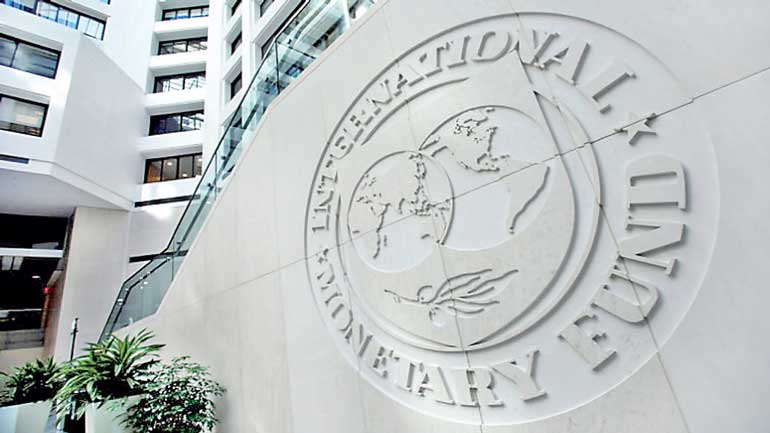Thursday Feb 19, 2026
Thursday Feb 19, 2026
Friday, 12 May 2017 00:00 - - {{hitsCtrl.values.hits}}
 Reuters: The International Monetary Fund said Asia’s economic outlook faces “significant” uncertainty and downside growth risks from any sudden tightening in global financial conditions or rise in protectionist trade policies.
Reuters: The International Monetary Fund said Asia’s economic outlook faces “significant” uncertainty and downside growth risks from any sudden tightening in global financial conditions or rise in protectionist trade policies.
The IMF, which in April raised its 2017 Asia-Pacific growth forecast to 5.5% from its previous October forecast of 5.4%, said loose monetary and fiscal policies across most of the region would underpin domestic demand.
“However, the near-term outlook is clouded with significant uncertainty, and risks, on balance, remain slanted to the downside,” the IMF said in its Asia-Pacific regional economic outlook released on Tuesday.
In April, the IMF kept the region’s 2018 growth forecast unchanged at 5.4%. Asia-Pacific recorded 5.3% growth in 2016. The report comes at a time when policymakers around the region are wrestling with the challenge of how to navigate rising risks of protectionism under U.S. President Donald Trump, and a potential increase in funding costs as the Federal Reserve steps up the pace of rate hikes.
“A possible shift toward protectionism in major trading partners also represents a substantial risk to the region. Asia is particularly vulnerable to a decline in global trade because the region has a high trade openness ratio, with significant participation in global supply chains,” the IMF said.
Centrist Emmanuel Macron’s victory in France’s presidential election is “good news” for open trade and globalisation, Changyong Rhee, director of the IMF’s Asia and Pacific Department told a news conference.
Rhee added that he hoped a recent agreement between Trump and China’s President Xi Jinping on a 100-day plan for trade talks would lead to expanded global trade rather than a reduction.
“So at this moment, I’m cautiously optimistic.”
Continued tightening of global financial conditions could trigger volatility in capital flows, and the region could see large spillovers if China’s shift to a more consumption-driven economy proves bumpier than expected, the IMF said.
Rhee reiterated that the IMF may need to upgrade its 2017 China growth forecast from 6.6% after the economy expanded more than expected in the first quarter, though he also said there are concerns about whether strong credit growth is being allocated efficiently.
The IMF emphasised that foreign exchange intervention should not be used to resist currency moves that reflect changes in fundamentals including in the global trade environment or as a substitute for macroeconomic policy adjustments.
It added, however, that “judicious” foreign exchange intervention might be called for in certain cases, such as when disorderly market conditions or rapid exchange rate movements threaten financial or corporate stability.
Reuters: The International Monetary Fund called on Asian economies to learn from Japan’s experience and act early to cope with rapidly ageing populations, warning that parts of the region risk “getting old before becoming rich.”
Asia has enjoyed substantial demographic dividends in the past decades, but the growing number of elderly is set to create a demographic “tax” on growth, the IMF said in its economic outlook report for the Asia-Pacific region on Tuesday.
“Adapting to aging could be especially challenging for Asia, as populations living at relatively low per capita income levels in many parts of the region are rapidly becoming old,” the report said. “Some countries in Asia are getting old before becoming rich.” The population growth rate is projected to fall to zero for Asia by 2050 and the share of working-age people – now at its peak – will decline over the coming decades, the report said.
The share of the population aged 65 and older will increase rapidly and reach close to two-and-a-half times the current level by 2050, it said.
That means demographics could subtract 0.1 percentage point from annual global growth over the next three decades, it said. The challenges are particularly huge for Japan, which faces both an ageing and shrinking population. Its labour force shrank by more than 7% in the past two decades, the IMF said. The high percentage of its citizens living on pensions may be behind Japan’s excess savings and low investment, which are weighing on growth and blamed in part for keeping inflation below the Bank of Japan’s 2% target, the report said. “Japan’s experience highlights how demographic headwinds can adversely impact growth, inflation dynamics and the effectiveness of monetary policy,” it said.
The IMF called on Asian nations to learn from Japan’s experience and deal with demographic headwinds early, such as by introducing credible fiscal consolidation plans, boosting female and elderly labour force participation, and revamping social safety nets.